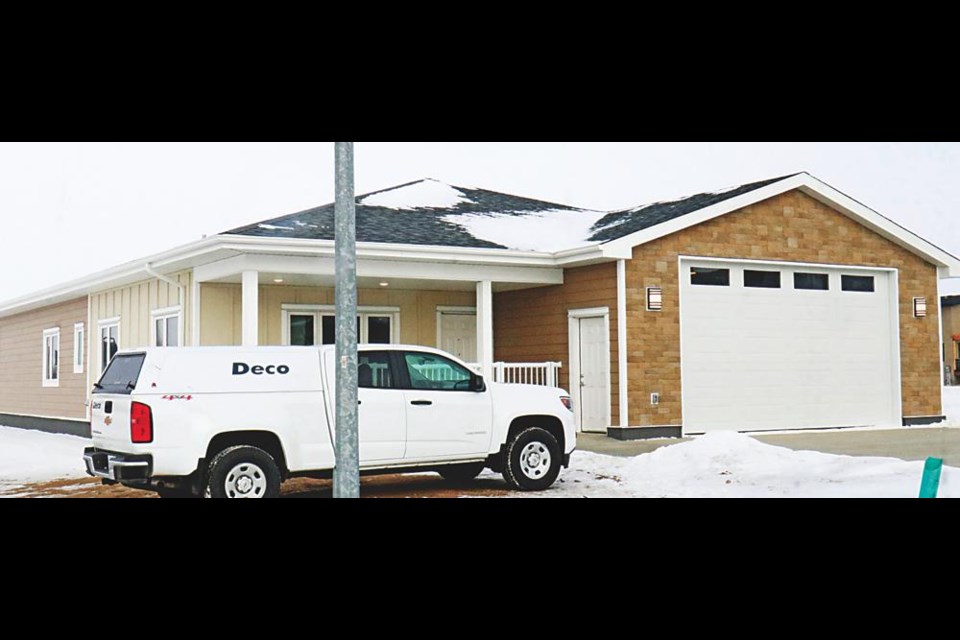WEYBURN – The rules and restrictions around the COVID-19 pandemic proved to be very challenging, but the residents and staff of the Weyburn Group Homes Society were very resilient and made it through most of the past two years without much sicknesses occurring.
Colin Folk, executive director for Weyburn Group Homes, gave an update to the members of the Weyburn Rotary Club via zoom, including an ongoing need for assistance with transportation.
“We are at full capacity,” said Folk. “People aren’t always aware that we’re such a big organization. We’re up there with a lot of the bigger agencies in Saskatoon and Regina.”
There are currently 77 clients who are housed by Weyburn Group Homes in seven licensed facilities. There are 21 semi-independent clients, plus 20 who reside in the 14 apartments at Dominic’s Place and in the community.
Folk noted the staff and clients of Weyburn Group Homes went about 20 months without any COVID infections at all, but most recently they’ve had an outbreak, and are currently working through that situation.
“Our culture has really changed in the last seven years,” said Folk, noting they have a low turn-over, with many staff staying with them for the last five years or more.
The clients are normally very involved with the community, but COVID has made that difficult, said Folk, adding, “We are really missing the bowling alley. I’m hoping someone will open that back up for our participants. We also miss the movie theatre.”
The Group Homes Society currently has nine vehicles to transport their clients to Regina or Estevan for movies, bowling and other activities.
Folk made an appeal to the Rotary Club to help with the maintenance costs, with such expenses as replacing tires or getting oil changes adding up.
“We aren’t funded for our vehicles. Rotary has been generous to us in the past, and when you do give to us, it goes to our vehicle fund,” said Folk.
He noted that with the shortage of new or good used vehicles right now, it’s very very difficult to find a good mini-van. Their most recent vehicle purchase was for an SUV, which staff like to use for trips to Regina.
Upcoming this spring, the Group Homes Society wants to return to in-person training, something they haven’t been doing for the past couple of years.
“We can do up to 10 people on zoom or web teams, but some care training is three days long,” he said, noting as an example staff need to be trained for stand-and-lift, to help someone who is in a wheelchair to get into a bathtub or to bed.
“These are safety measures. I will be meeting with the board to ask if we could get back to in-person training in April. We’ve been trying to avoid that as much as we can, but for the safety of the participants, we’ve got to get training in the same room together,” said Folk.
Meantime, the executive director is hopeful to get the participants back to participating in events once again, and while it was too late for a Valentine’s dance, he is hopeful to hold an Easter “Bunny Hop” dance at Dominic’s this spring.
Meantime, as occasions arise (such as the recent outbreak), there have been times when overtime was needed, and their staff jump at the opportunities to help out in other facilities.
“I don’t get the vibe that it’s the same way around the province. That’s why I would put Weyburn Group Homes up against any agency I’ve ever worked for or with, for the dedication of our front-line employees,” said Folk.
The organization recently added a new group home, built for them by the Sask. Housing Corporation on DeLaet Drive in the Creeks subdivision on the city’s east side.
The organization could handle even more, as they have a waiting list of 14 potential residents, including six applications that are pending but can’t move ahead because they don’t have anywhere to put them.
Weyburn Group Homes has 117 employees as of their last payroll, said Folk, noting part of the reason they can’t expand is they would have a hard time finding more employees.
The organization is looking for a new board member to join by June, he added. Anyone interested in joining the board can email him at wghs@sasktel.net.
Folk noted that he and other executive directors around the province are lobbying the provincial government for their employees to get parity with the wages for continuing care aides, or special care aides, as “the work is the same, and the responsibilities are the same, and our front-line workers deserve it.”
He noted the wages are currently $4 an hour lower than continuing care aides currently receive.





